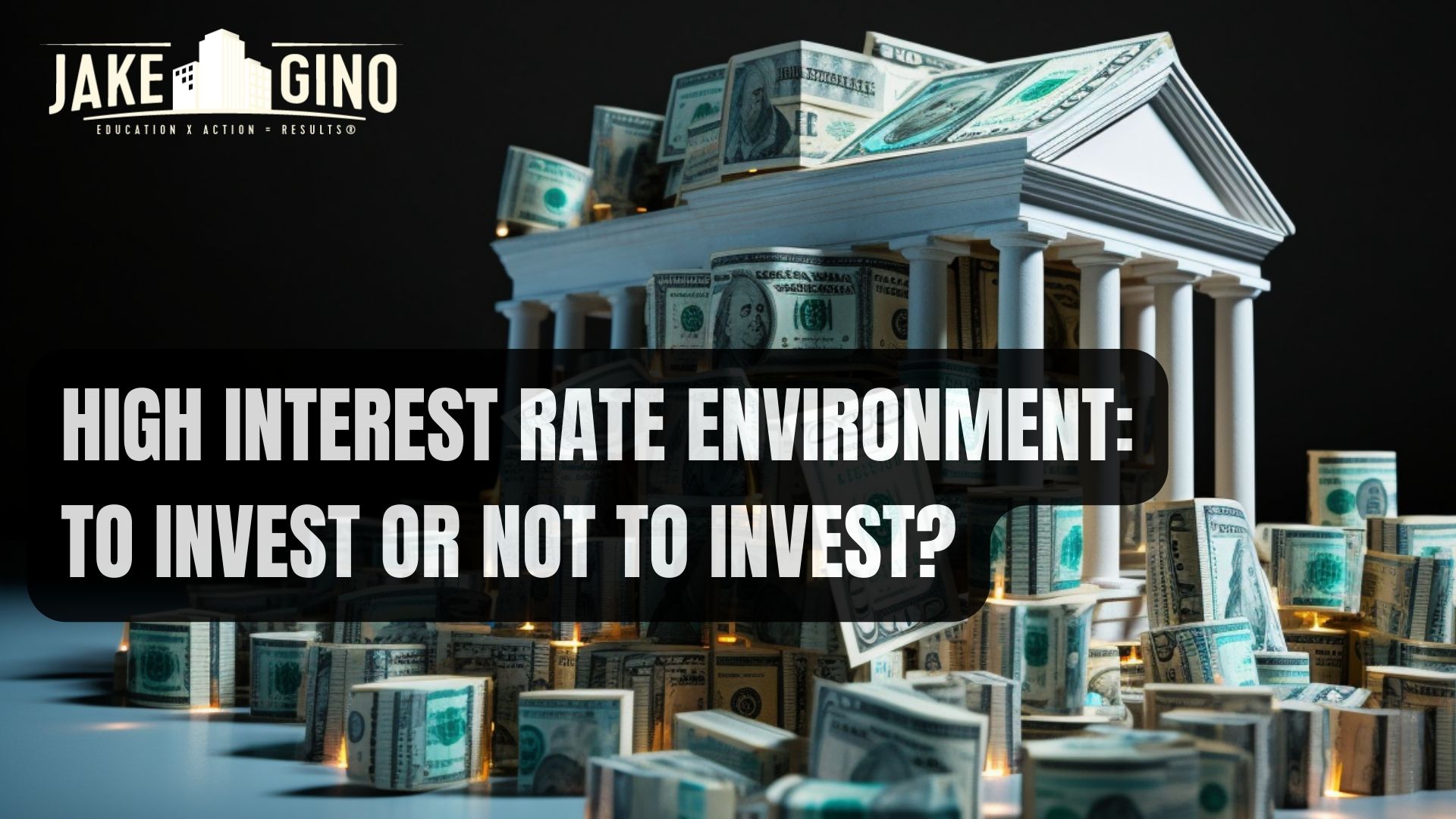
Real Estate Investing in a High-Interest Rate Environment: To Invest or Not to Invest?
In the ever-evolving world of real estate investment, one question that often looms large is whether it’s a prudent move to invest when interest rates are riding high. It’s a query that has perplexed many investors, both seasoned and newcomers alike. With the ups and downs of the economy, interest rates can fluctuate, posing a significant challenge for those looking to make smart real estate investments. In this article, we delve deep into the heart of this matter to provide you with a comprehensive understanding of whether investing in real estate when interest rates are high is a wise decision.
The Current Real Estate Landscape
Before we dive headfirst into the debate, let’s take a moment to assess the current real estate landscape. We find ourselves in an era of economic uncertainty, where interest rates can be likened to a seesaw, constantly shifting up and down. This unpredictability makes it imperative for investors to adapt their strategies accordingly.
The Allure of High-Interest Rates
While high-interest rates may seem like a deterrent for real estate investment, they also bring certain advantages to the table. We must consider that these high rates are typically a result of a strong and growing economy. In such a scenario, rental demand often surges as more people seek housing, driving up property values. This, in turn, can lead to higher rental income and property appreciation, which are undeniably attractive prospects for investors.
The Downside of High-Interest Rates
On the flip side of the coin, high-interest rates can also bring about some challenges. For instance, borrowing costs tend to rise, making it more expensive to finance real estate purchases. This can cut into potential profits and reduce the overall return on investment. Additionally, high rates can discourage potential homebuyers, leading to a decrease in demand for real estate, which could negatively impact property values in the long run.
Risk Mitigation Strategies
To navigate the complex terrain of real estate investment in a high-interest rate environment, we suggest considering several risk mitigation strategies:
- Diversification
Diversifying your real estate portfolio can be an effective strategy. We recommend exploring various types of properties, including residential, commercial, and mixed-use. This diversification can help spread risk and protect your investments from fluctuations in the market.
- Locking in Fixed-Rate Mortgages
When interest rates are high, locking in a fixed-rate mortgage can provide stability. This means that your interest rate remains constant throughout the life of the loan, shielding you from rising rates and ensuring predictable monthly expenses.
- In-Depth Market Research
Conducting thorough market research is crucial in any real estate venture. We advise staying up-to-date with local and national economic trends, as well as the specific dynamics of the real estate market in your target area. This knowledge will enable you to make informed investment decisions.
- Professional Guidance
Seeking the guidance of experienced real estate professionals can be invaluable. We recommend consulting with real estate agents, financial advisors, and legal experts who specialize in real estate transactions. Their expertise can help you navigate the complexities of high-interest rate environments.
Conclusion
In the grand scheme of real estate investment, the question of whether to invest when interest rates are high is not one with a one-size-fits-all answer. We must consider various factors, including the state of the economy, personal financial goals, and risk tolerance.
While high-interest rates may pose challenges, they can also present opportunities for savvy investors who approach the market with caution and a well-thought-out strategy. Diversification, fixed-rate mortgages, market research, and professional guidance are all tools at your disposal to mitigate risks and make the most of your real estate investments.
In the end, the decision to invest in real estate when interest rates are high ultimately depends on your individual circumstances and investment objectives. By staying informed and proactive, you can position yourself for success in the dynamic world of real estate investment.






